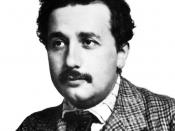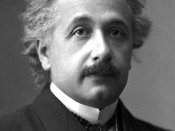Discovery could come to anyone who wants to. It is not an aberration that novice opens the new realm of the inquiry with an important discovery. However, there seems little doubt that well-prepared researchers have had more chances to find revolutionary discovery than beginners.
Great discovery needs intense preparation rather than good luck. This is because experts could precisely recognize what is valuable when the moment they detects a discovery. There is an old saying, "People could see to the extent of their knowledge." This illustrates the point that assimilating related information and knowledge is one of the most essential factors for the incredible discovery. For instance, both Newton and Einstein, two of the most creative people in the history, had made a thorough preparation for their brilliant ideas which brought on science revolution. Einstein stuck to an experiment which reassessing the heritage of the physics while other theoretical physicist researched with the result of a previously performed investigation.
Also, Newton issued the remarkable book, The optics, after he had studied it for 30 years.
On the other side, Non-experts also make a disclosure of their noteworthy finds. It is because that Beginners put a question to everything natural for those who have studied for a long time. Furthermore, novices sometimes make a mistake which causes momentous results. As a representative example, The discovery of Koichi Tanaka who won Nobel chemistry prize in 2002 is a result from a blunder which is dropping glycerine into the cobalt power. If he had been an experienced chemist, He would not have done it.
It is through a cooperation between experts and non-experts that immortal finds could be exposed more. A fresh point of view of Beginners would invoke imagination of experienced researchers. Though not a direct assist, It could be a very...


